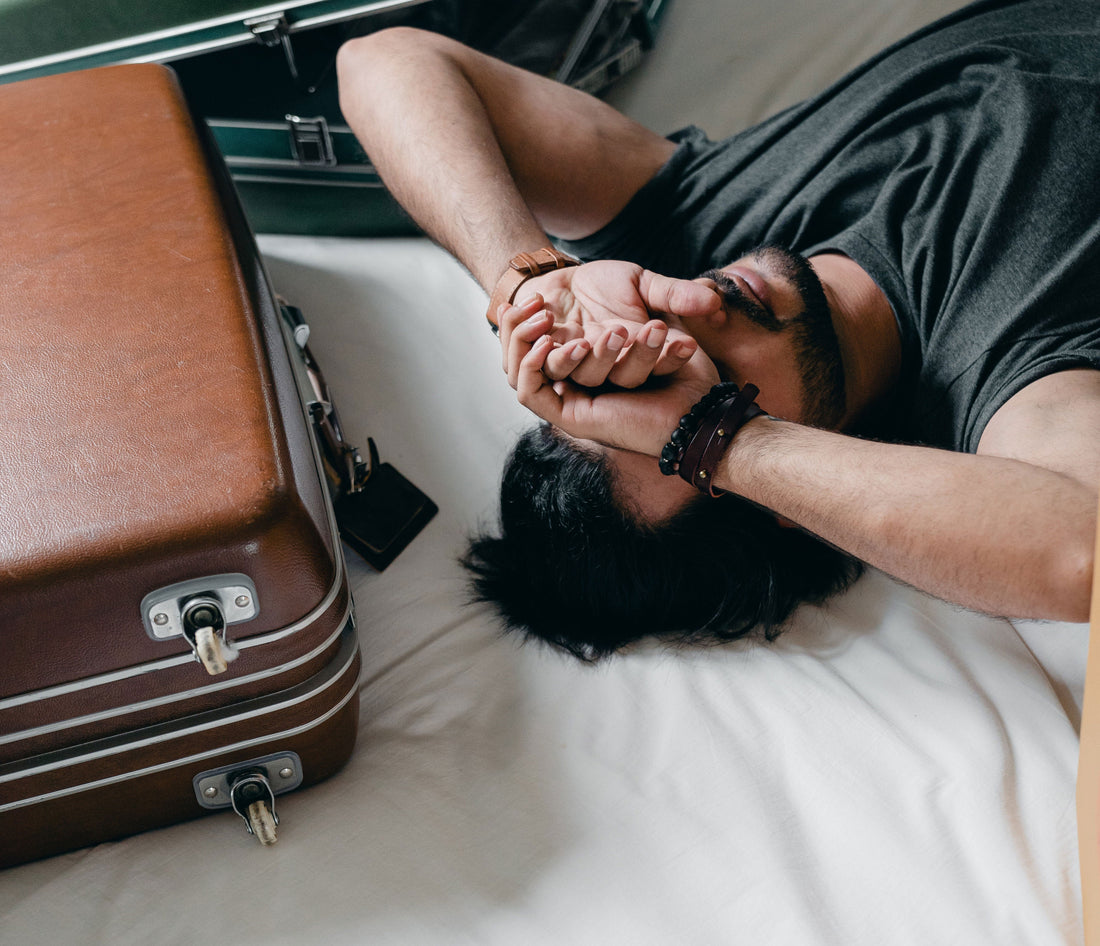
Struggling to sleep when travelling? Use these helpful tips!
Share
We can all agree that sleep is fundamentally important for our health and wellbeing. But even more so when we travel! Why? Whether you’re travelling for business or pleasure, staying local or flying across the globe, our normal sleep-wake regimes are bound to be disrupted in some way. Sleep problems generally arise as a result of:
- Travel fatigue – generated from the mental and physical stress of several factors such as the fear of flying, stress around potential problem arising during the trip, delays or interruptions to the itinerary and inability to sleep in transit (in a plane or train), all of which can culminate in major sleep losses.
- Time zone shifts – especially those that occur quickly, which cause a misalignment of your body’s internal biological clock with the local time of your destination. In effect, not only does this throw your sleep off but can cause other unpleasant symptoms such as poor mental performance, daytime sleepiness and gastrointestinal problems.
- Unfamiliar settings – such as sleeping in a different (often an uncomfortable) bed or adapting to the noise volume of new accommodation can be unsettling, especially for those who are generally light sleepers.
- Altered diet and exercise routines – as travelling can sometimes mean we are participating in less exercise, indulging in more alcohol or heavy meals and consuming food later in the evening which can have negative implications for sleep.
Five top tips for sleeping better when travelling
- Minimise pre-travel stress– by planning ahead, getting sufficient sleep the day before your trip and arriving at your departure spot early.
- Pre-shift your sleeping routine – by following a sleep-wake schedule as you would at your destination[1]. The earlier you start the easier it will be and the less likely you’ll feel debilitated after switching time zones.
- Get moving everyday – is essential for optimising our sleep[2]. This doesn’t mean you have to commit to anything strenuous. Simply walking daily can be medicinal for the body, so take advantage of your familiar or new surroundings and explore on foot!
- Use the power of sunshine – as it is a potent regulator of sleep. Try to get light exposure as quickly as possible after waking (outside without sunglasses). This is crucial as light triggers the release of cortisol, a hormone that stimulates wakefulness, and sets the time for when melatonin, our sleep hormone, is going to be released[3].
- Pacify with herbs – that have a long history of use for sleep such as Passionflower, California poppy and Ziziphus. Passionflower and California poppy are traditionally used in Western herbal medicine to promote sleep and relieve excess nervous energy, whereas Ziziphus is traditionally used in Chinese medicine to relieve sleeplessness and promote a refreshing sleep. Herbs of Gold Sleep Ease is a premium sleep formula containing a blend of these medicinal herbs that can be considered when packing for your next getaway!
Practicing healthy dietary and lifestyle habits before and throughout your trip can help prepare you for any unpredictability and unfamiliarity that comes your way so you can travel happily and sleep with ease.
[1] Sleep Health Foundation. (2011). Ten tips to Help combat jetlag. https://www.sleephealthfoundation.org.au/pdfs/Jet-Lag.pdf
[2] Kline, C. E. (2014). The bidirectional relationship between exercise and sleep: implications for exercise adherence and sleep improvement. American Journal of Lifestyle Medicine, 8(6), 375-379.
[3] Petrowski, K., Bührer, S., Albus, C., & Schmalbach, B. (2021). Increase in cortisol concentration due to standardized bright and blue light exposure on saliva cortisol in the morning following sleep laboratory. Stress, 24(3), 331-337.
